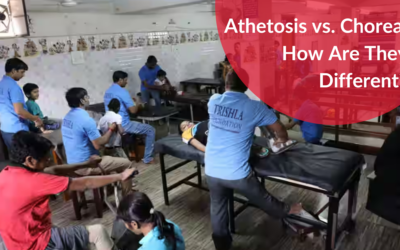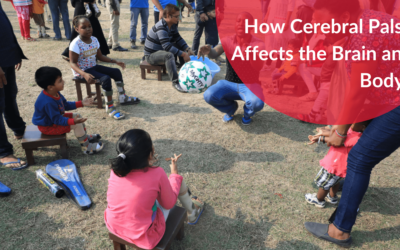Cerebral palsy is a highly complicated medical condition, but what is even worse is the associated conditions that come with it. So that you know, cerebral palsy and incontinence unfortunately occur alongside each other in few of children. Most children with cerebral palsy learn to control their bowel and bladder. It is pretty standard for toilet training to take longer and require additional support. Cerebral palsy incontinence can negatively impact the quality of life of the patient. So, helping your child manage the condition is extremely important. No matter if it is spastic cerebral palsy or any other variation, make sure you get him to the doctor on time to identify any underlying conditions as well. This is the key to getting started with the treatment on time and offering him a better quality of life.
Are cerebral palsy and incontinence connected?
Yes, this might come as a shocker to you, but bowel and bladder incontinence are widespread problems that affect children and adults with cerebral palsy. About 70 to 80% of cerebral policy patients have issues with incontinence in very early life but most of them develop control as they became teenager. At the same time, 85% of patients have bladder overactivity. This happens due to neurological impairment.
Children who have cerebral palsy gain bowel and bladder control at an older age when compared to typical developing children. Here, the incidence of urinary incontinence during night and day and even constipation is higher in this population. As per an NIH study, even though there is a well-known link between cerebral palsy and incontinence, cerebral palsy treatment strategies have not been appropriately investigated, and sadly, cerebral palsy incontinence is generally considered normal as a minor issue. But the good news here is that there are many options available for helping those suffering from cerebral policy incontinence.
Cause of cerebral palsy incontinence
In continence in cerebral palsy occurs because of many reason mentioned here:
Neurogenic bladder: it is caused by damage to the nervous system, which affects the detrusor in a condition known as neurogenic bladder. It may cause urgent frequent or painful urination.
Poor bladder control: commonest problem in cerebral palsy is the body balance and muscle coordination. This effect also impact bladder muscle and unable to stop once sensation of urination start
Retention of urine: spasticity also impact smooth muscle so in tern child hold the urine in large amount and overflow occurs once bladder is full.
Mobility issue: child is unable to go toilet once they feel urination so they urinate at same place where they are sitting.
Difficulty in communication: child feel difficulty in communication regarding urge of urination
Will every patient develop cerebral palsy incontinence?
Urinary incontinence is only persist in severely affected children only. Very rarely mildly affected children will have incontinence. It will take months or even years for a child to show any noticeable cerebral palsy symptoms after birth. Further, it takes several years for the child to be properly potty trained. However, certain factors can indicate future cerebral palsy incontinence.
- Severity of motor impairments is a clear indication. When the impairment is severe, then the risk of cerebral palsy incontinence is also higher.
- The patient who has spastic cerebral palsy are less likely to experience this condition, but they also add a risk.
- In case the patient has an intellectual disability, then cerebral palsy incontinence is more likely as the patient may not know what to do when they need to use the washroom.
- If people with cerebral palsy can express when they need to use the bathroom, fewer accidents will occur.
- Studies have shown that it takes longer for patients with cerebral palsy to develop bowel and bladder management skills.
How to manage cerebral palsy incontinence?
Different approaches can be used for treating cerebral palsy incontinence. Generally, the sooner the problem is identified, the better for you to start the treatment early.
- Incontinence training
It is a specialized program that involves sticking to a schedule for emptying the bowel and bladder almost at the same time every day.
- Wearing a diaper
Diapers can be extremely helpful when your child is just starting incontinence training or is taking some new medications for treatment.
- Medications
Different medications are available in the market that can actually be helpful. But most of time in these children medicine may not be effective. Consultation to urologist is mandatory for starting medicine. Urography may be required to check the cause of incontinence.
- Urotherapy
It is a non-surgical treatment that typically provides information on fluid. Keeping bladder diaries requires lifestyle changes. The technique can also include pelvic floor training and electrical stimulation for better management.
- Catheter
In this case, a narrow tube is inserted to drain out from the bladder, either every 4 to 6 hours or by wearing a catheter at all times. It is much prescribed in cerebral palsy children. It is being used in bed ridden patient or during sever medical illness.
- Bladder augmentation
It is a surgery that helps to expand bladders to hold more urine.
- Botox
Botox injections can help relax bladder muscles by blocking nerve signals in adults with cerebral palsy.
Based on the severity of the condition, the professionals can advise about the best treatment option that will help reduce the chances of mishap and control the underlying condition.
Conclusion
In case you have a patient suffering from cerebral palsy incontinence, then make sure you schedule an appointment with the Trishla Foundation for the proper support. They have got skilled and specialized professionals to handle all types of cases. No matter the severity of the issue, they will be able to handle things properly and provide all the assistance. Their experts will develop a customized treatment plan that will work well for your child to see better outcomes and lead a cheerful life later on. Their professional support will make a massive difference in the treatment and guarantee better outcomes.







